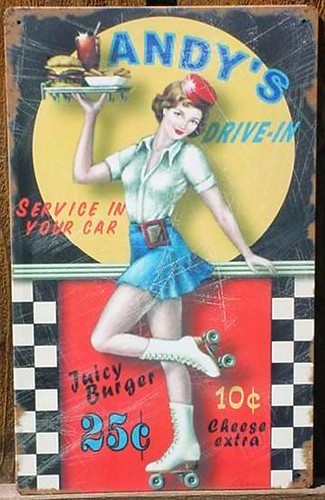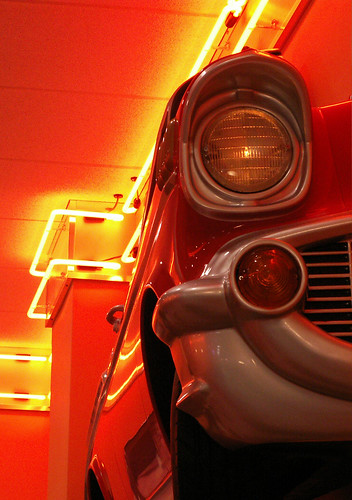Organic Wines Uncorked
By Mike Marino

You've just installed new solar panels to harness lean, mean and clean energy from the sun. You recycle with the fervor of a religious zealot, and you've taken your SUV to the junkyard to be crushed into an abstract work of heavy metal art, in favor of that smart new hybrid sitting in your garage. The compost pile in your backyard is beginning to brew and ferment, producing a intoxicating anaerobic aroma that is nothing short of a green perfume. Soon, it will be spread with tender loving care over your organic garden, which will release a sustainable cornucopia of fresh vegetables and spices. You've done all the right things. You've gone green with a vengeance and it's time to open a bottle of wine to celebrate. Wait! Before you embark on Bacchus and uncork that bottle of vino, you do have to ask yourself one question. Are these grapes happily organic, or merely corporate grown grapes of wrath?
"Future Shock" and "The Greening of America", were late Sixties, early Seventies handbooks for survival in the world rising to a new consciousness. They touted the mantra of back to the earth simplicity and organics. I first discovered these myself through an acquaintance from San Francisco, a Haight hipster and holy bhikku wino, who went by the name of Doc Yucatan. Doc spent hours discussing organic food growing, composting and self-sufficiency, and had visions of a Xanadu of artists who would return to the soil to create art, and to consume what they grew. One of the areas of particular interest in those post-Beat Generation dazed days was the growing of grapes for the production of wines. Let's face it, no artist can create without a bottle of Annie Greensprings next to the typewriter. The idea was as American as, well, Concord Grapes.
Doc's magic carpet ride of a visionary community of vinophiles never left the city by the Bay, but today, organic wine making, is spreading like a wild grapevine and American vintners and others from around the world are leading the charge against profligate pesticide use and the redundant depletion of a soils nutrients by over fertilization violating the fruits as though attacked by a madman on Viagra.
Fast forward to today. The green gold rush is good for the planets future as agriculture embraces it's practicality, and the wine industry is not immune. Downunder, in the land of the 'Roo, dwell the Australians, and in particular Ron and Emily Laughlin who own Jasper Hills Winery. They've been grape growing greenies for decades, mate. Then, there is California, located on the Pacific Left Coast of the United States, in Napa and Sonoma valley's of course.

Aussies have a fiercely independent nature. Perhaps it's because of it's penal colony roots that has something to do with it, or more to the point, vast pints of ale and beer that is consumed as though a national sport. Weird looking critters like platypus' and koala's, and other animals that defy explanation could also play a role in defining their defiant national character. So it's not surprising that in the vanguard of natural vintning comes an Australian, (Strayan for the uninitiated) whose independent streak has placed Ron and Emily Laughton on the pioneer pedestal of the Organic Hall of Fame, having embraced organic techniques back in the bad old days when chemicals were all the rage. In the process, he helped to establish, no, define the Heathcote region in central Victoria as a pre-eminent wine producing region. Not bad for a beer drinking son of a sheep farmer, raised on a ranch near Sydney.
He eventually left the family farm and worked as a technologist with one of Australia's largest dairy cooperatives. While traveling to the milk factories in the northern part of Victoria, the landscape stood out and wine popped into his head. Call it a vino vishnu vision. Today when you uncork a Shiraz, your pallate will go "Shazam". Yes, it's that good! The question though is about the big "O", organics. How committed are these vintners to the spirit of Mother Earth? Put it this way, Mother Natures soil in Jasper Hills vineyard is still a virgin.
Never once defiled by synthetic chemicals, the vineyard could wear white at a wedding. Insecticides, herbicides and fungicides are chemicals non gratis here, and on occasion, some elemental sulfur or Bordeaux mixture is applied.
So how does wine stack up in beer and ale territory. Are people popping the cork and not just the can tab? According to Emily, they are. “Yes, I do believe wine is becoming more popular in Australia. There are some young people are still drinking those (awful) alco-pop mix drinks, but there are many people you see with a wine. The number of wine bars around Australia is on the increase and I believe the stigma attached to wine is fading. People are wanting to learn more about wine and particularly where it has come from,” she said.
When it comes to harvest time, the harvest does not take the over-mechanized corporate heavy metal approach either. It's all done by hand by friends, family and some serious wine loving locals who know a good thing when they see it. According to Emily, it’s party time. “You'd like to think it is a party atmosphere, but there are times when it is bloody hot and the fruit just has to come off. It is good work though as people get to pick and chat amongst themselves. We have had many people come back year in year out which is lovely.”
“We have many people from all around the world that send emails asking to come and visit/work, particularly during vintage. It is very hard for us to accommodate everybody as we are a small family run business and often there is not enough work or time to go around. We do have groups come to visit and Ron also goes to speak at the Universities about organics/biodynamics. The way we grow and produce our wine is nothing new really, it's just been a little forgotten since the chemical age came in (which was not all that long ago really). It is great that people are interested in visiting us us or even just taking the time and thinking about what they purchase and where it has come from.”
The good stewards down under also produce their own compost, organic to be sure for the vineyard and mucho mulch is applied over the soil surface. Emily Laughton, Rons, wife and partner in organic crime says, "We use vine prunings, legumes and native grasses. We also aerate the soil and we do minimal tillage to minimize what they call soil compaction," she said. The soil is as rich as a Rothschild with it comes to organic matter and that includes tons of those blue collar workers, the earthworms working the soil like a factory at full throttle. The Jasper Hills philosophy is summed up by Ron..."Wine-making is all about sex."
The Teamsters have their rank and file, and so does the organic product when it comes to labeling. Those wearing the 100% organic union label medal of honor have to have only organically produced ingredients and processing aids used in it's production. If a wine earns this badge, it would be the equivelent of receiving the Purple Heart for heroism in combat under fire. At this point, no American wine has made it to the top of this ratings Mt. Everest, but vintners are getting closer to the summit each day. On the other hand, if a product is labeled "organic" it must consist of at least 95% organically produced ingredients, again excluding water and salt. Any remaining ingredients must appear on the NOP list of allowed ingredients. When it comes to sulfites, suffice it to say, the addition of sulfites beyond those which naturally occur in fermentation is not allowed in this category. Products labeled "Made with Organic Grapes" must contain at least 70% organically produced ingredients. Any remaining ingredients must appear on the NOP list of allowed ingredients. The addition of sulfites up to 100 ppm is allowed in this category to preserve flavors, aromas, and shelf life. This is the category in which most of the organically produced wines fall.
So...in choosing a fine wine, the eco-vinophile can go "O" with wines from fancy France to the organic Outback of Australia to the Pacific Left Coast of America. It's not just about white, blush and red wines going green, it's about keeping our own earth-ship alive and in perfect organic orbit.
>..
Fifties & Sixties Pop Culture!
Classic Cars, Rock n' Roll, Elvis, Route 66, Drive in Movies, Route 66, Roadside Culture, Kerouac & The Beats, Haight Ashbury, Easy Rider & Vietnam

Available in US, Canada, UK, Australia, Germany, France, Netherlands & Japan

BBQH BABY BOOMERS HEADQUARTERS MAGAZINE
This is the epitome of a boomer roadie book for the boomer roadie. It's funny, it's nostalgic, it's interesting. Route 66, fins, fuzzy dice, carhops. It's all there. This would be a great gift for the roadhead in your life.
